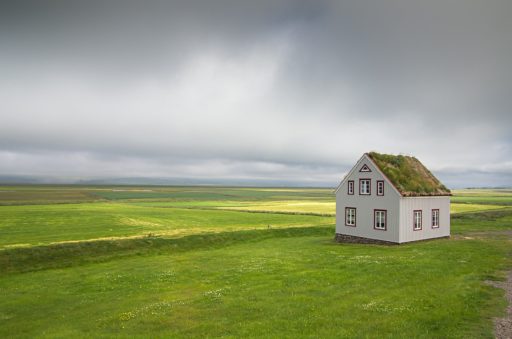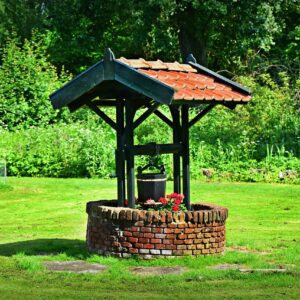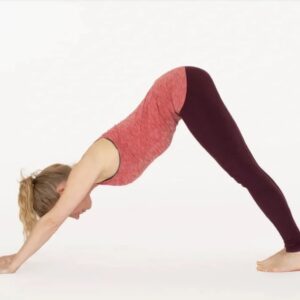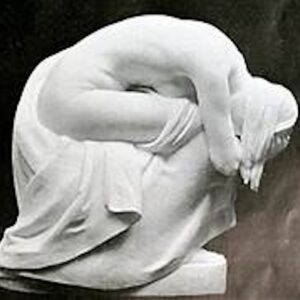I have to get out of this place, I said to my wife.
“I dwell in Possibility,” writes Emily Dickinson.
What’s my problem?
When, a few days before we were scheduled to take a week-long road trip north to see my mother, I blurted that out to my wife, she gave me a look. She didn’t tell me what she was thinking. She didn’t need to. I understood. There was something wrong with me for feeling that way. After all, we’re fortunate to live in Asheville, North Carolina, in a comfortable house, woods behind us with bears and an occasional coyote, and a winter view, only partially obstructed, of often breathtaking, mountain sunsets. Maybe life during COVID contributed to my feeling the acute need to get away. But, vaccinated and boosted, we’ve felt much freer to move around our town for months now.
For the year and a half when I taught from home, the family room, front porch, back deck, bedroom, and even my study, when I wasn’t busy professoring on Zoom, were my refuge: spaces of possibility. Now, just recently fully retired, to my surprise and consternation, I feel trapped in the house. Wherever I turn, in whatever room I find myself, I see the need to purge, organize, replace, repair, paint, renovate—the very projects I’d longed, before retirement, to undertake. I wanted to dwell more deeply in my house, the place where, when I was working, I merely lived. Alas, finally free to devote my time to projects of my choosing (not the least of which is reading, reading, reading, and writing, writing, writing), I feel oppressed by possibility. I dwell in impossibility.
Nevertheless, I choose a book: Thistles: Selected Poems of Esther Raab, translated from Hebrew by Harold Schimmel, and land on an untitled poem that begins,
The walls of my house
became my companions.
Raab, writes Schimmel in his introduction to Thistles, is “the first native-born Hebrew woman poet—the first, in other words, born and raised in the language in modern times…. “Raab was born in Petah Tikvah, “the earliest Jewish agricultural settlement in Ottoman Palestine,” in 1894. “The walls of my house” is dated 1932, about two years after the death of her first husband.
The walls of my house
became my companions.
Like a brother’s arms they befriended me—
year after year
resting securely.
A single incense-of-being,
like a golden cloud,
sailing, rising up
to the shadow of vaults
and melting among bricks;
sand and forgetfulness covered
paths all about,
and windows are cut out
facing the sea,
and from one roof edge
to the other
stars tread
their arc fixedly,
and meteors flash
gossamer on the wing from my hand
to infinity.
At the time Raab wrote, she was unlike the “line of woman poets in Palestine” who, explains Schimmel, had “immigrated from Russia, wrote and spoke Russian, and translated into Hebrew from sturdy Russian models.” Raab’s “home-spun poems,” free of echoes of Russian modernist poetry, set her apart. Not unlike, observes Schimmel, in another context, Emily Dickinson.
Perhaps even without Schimmel’s comparison of Raab to Dickinson, “The walls of my house” might have brought to mind Dickinson’s “I dwell in Possibility— / a fairer House than Prose—”. Two house poems!
I dwell in Possibility –
A fairer House than Prose –
More numerous of Windows –
Superior – for Doors –
Of Chambers as the Cedars –
Impregnable of eye –
And for an everlasting Roof
The Gambrels of the Sky –
Of Visitors – the fairest –
For Occupation – This –
The spreading wide my narrow Hands
To gather Paradise –
In Raab’s poem: walls, vaults, windows, a roof. In Dickinson’s: windows, doors, chambers, a roof. In both, a final, exhilarating moment of expansiveness:
…meteors flash
gossamer on the wing from my hand
to infinity.
The spreading wide my narrow Hands
To gather Paradise.
The way to paradise is through poetry: form. The way to infinity, through the finite: form. Perhaps possibility seems most out of reach when one has not committed oneself to attending to the demands and limits of form: temporal (say, meter or rhythm), spatial (say, a house or the physical universe). An ultimate temporal and spatial limit: life in a human body.
When my spirit knew that the time to stop devoting my attention and strength to life at the university had arrived, I retired. Now, death is nearer. My spirit knows that, too. And I’m afraid, afraid of running out of time before… Before what? The list is long. When I said to my wife “I gotta get out of this place,” I meant more than just our house in lovely Asheville. I meant that I was desperate to get out of the human condition: mortality.
Perhaps if I listened deeply to Dickinson and Raab, I could learn to live in the house of mortality, with its fragrance of the “incense-of-being,” of being in an aging body, rising toward heaven.
Richard Chess directed the Center for Jewish Studies at UNC Asheville for 30 years. He helps lead UNC Asheville’s contemplative inquiry initiative. He is a board member for the Center for Contemplative Mind in Society. He’s published four books of poetry, the most recent of which is Love Nailed to the Doorpost. You can find him at http://www.richardchess.com





